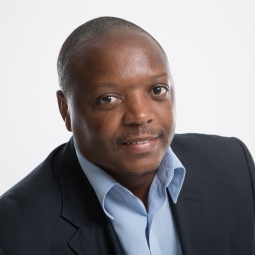IEEE President and CEO talks about disruptive innovations
The speed of technological innovation and the continual expansion of disciplinary knowledge leave little time in the curriculum of engineering students to formally study innovation. Speaking at the CSIR, recently, Prof Barry Shoop, President and CEO of the Institute of Electrical and Electronics Engineers (IEEE) for 2016, highlighted this concern and the importance of formally studying innovation, particularly at undergraduate level.
The speed of technological innovation and the continual expansion of disciplinary knowledge leave little time in the curriculum of engineering students to formally study innovation. Speaking at the CSIR, recently, Prof Barry Shoop, President and CEO of the Institute of Electrical and Electronics Engineers (IEEE) for 2016, highlighted this concern and the importance of formally studying innovation, particularly at undergraduate level.
Shoop said that even though the goal of engineering education is to teach students how to think critically and be creative and innovative, the speed of technological innovation and the continual expansion of disciplinary knowledge leave little time in the curriculum for students to formally study innovation. Shoop delivered a talk at the CSIR on 26 July 2016, titled: “Disruptive innovations as a vehicle to develop critical thinking, creativity and innovation skills”.
Shoop, a Professor of Electrical Engineering and head of the Department of Electrical Engineering and Computer Science at the United States Military Academy at West Point said that his institution has developed a novel upper-division interdisciplinary undergraduate engineering course that delivers disruptive and innovative applications of commercial technologies to an external funding agency and simultaneously develops the critical thinking, creativity and innovation of these students.
Before his talk, Shoop was taken on a tour of the CSIR’s radar and electronic warfare, optronics and command, control and information warfare applications, organised by Reeshen Reddy, a CSIR research group leader and IEEE member.
“Shoop’s talk highlighted the importance of the human dimension in technology development and brought into focus the social, political, and culturally aspects that are critical to the CSIR and the South African national system of innovation,” remarked Reddy.
During his 20 years at West Point, Shoop has served in a number of key leadership positions, including Director of the Photonics Research Center and Director of the Electrical Engineering Program. As the professor and head of an undergraduate academic department, Shoop is responsible for over 79 students and the faculty staff that support the Accreditation Board for Engineering and Technology, Inc. accredited programs in electrical engineering, computer science, and information technology. The department engages over 2 300 students each year and has four affiliated research centres, including a Cyber Research Centre, Network Science Centre, Photonics Research Centre, and a burgeoning robotics programme.

